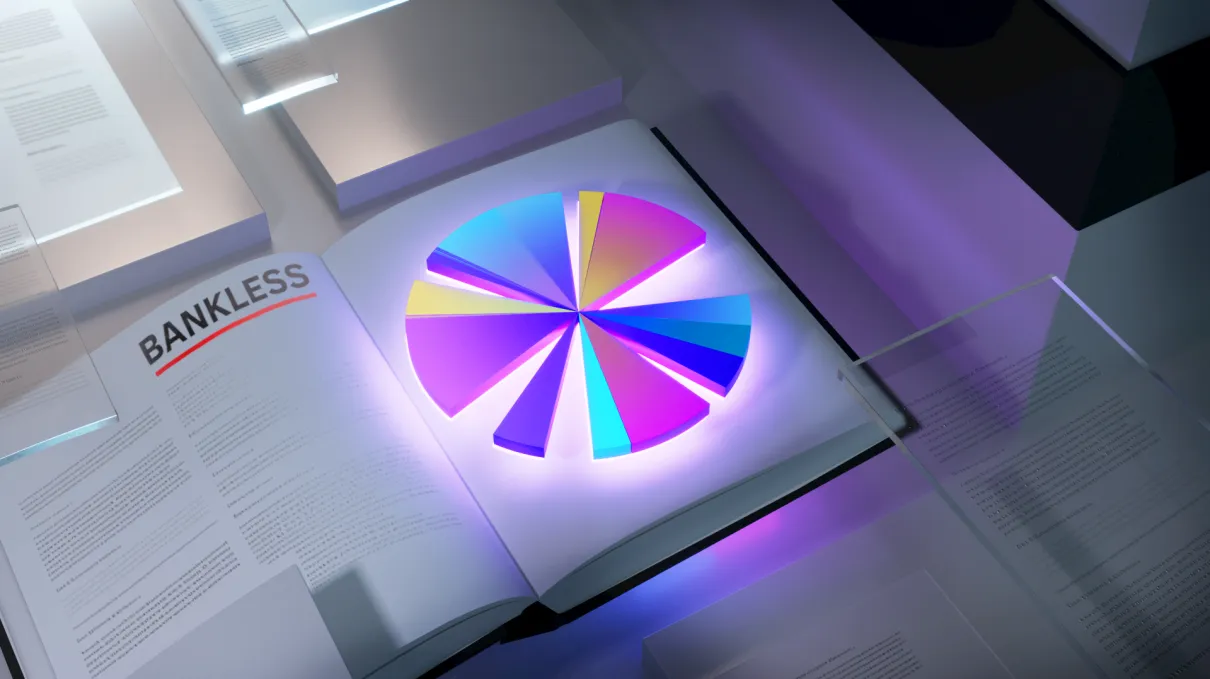
Ethereum's Blue Chip Lending Protocols are Leveling Up
The DeFi story is nothing short of remarkable.
From its early days of experimentation and speculative frenzy, DeFi has now matured into a cornerstone of the crypto ecosystem.
At the heart of this revolution are the blue chip lending and borrowing protocols – the pioneers that kickstarted the DeFi summer. They've faced black swans, proven product-market fit, and solidified positioning in the ecosystem.
Now, they're poised for the next phase of their growth. We're witnessing these blue chips expand their offerings, diversify revenue streams, and build for the future while remaining committed to the DAO ethos and Ethereum's security.
In this piece, we’ll dive into the latest developments in the world of DeFi blue chips. We'll examine their strategies, innovations, and ambitions for the future. By understanding their vision, we can get a glimpse of the next wave of growth that's shaping our industry.
👻 Aave
Aave isn’t your average lending market, it’s THE DeFi lending market of crypto, boasting a chunky TVL of over $11 billion. Everyone in the space has probably used it at some point. How did they pull this off? By relentlessly scratching an itch.
People needed to borrow and lend crypto, and Aave built a fantastic system to do just that.
But Aave isn't stopping there. Their DAO, one of the most active in DeFi, just released a vision for Aave 2030. It's basically a roadmap for how to take their already dominant tech (Aave V3 and the stablecoin GHO) and crank it up to dominate the multi-chain landscape, with a possibility of even launching its own chain at some point on the cards.
At the heart of Aave's ambitious plans is Aave V4. Aave V4 proposes a whole new architecture for the protocol. Think of it as a unified liquidity layer, designed to make the system even more capital efficient. Easier for users, less governance hassle, way more capital floating around – that's the goal. Aave Labs also plans to introduce a bunch of automations and improvements to the risk parameters to ensure that the system runs smoothly through bear and bull.
Moreover, Aave plans to become chain agnostic with its Cross-Chain Liquidity Layer (CCLL). It will let users tap into liquidity pools across all supported chains on Aave – instant access, everywhere you go.
The other big bet? Their stablecoin, GHO. They plan to integrate it even deeper into V4, and use it as a springboard for bringing real-world assets (RWAs) into crypto. They're partnering with Chainlink to make this a reality.
And that's not all. They're even toying with the idea of their own chain, the Aave Network. This would be the ultimate Aave hub, letting them unlock even crazier network effects. Think GHO for fees, a seamless user experience with V4 at the center, and extensive use of Account Abstraction – all powered by the security of Ethereum.
Moreover, Aave Labs wants to push beyond Ethereum-based chains (EVM) too. They're planning to explore non-EVM chains in the next few years.
Given its track record and current trajectory, if all the proposed features are executed, Aave could very well dominate the DeFi lending market scene for the next decade.
🌞 Sky (formerly MakerDAO)
Sky is in the midst of a transformation, one driven by their ambitious vision for the future, the Endgame. At its core, this multi-year plan aims to transform the DAO into a self-sustaining network of DAOs, each working in concert to propel the ecosystem forward and establish their stablecoin as a dominant force – all while preserving a healthy balance in governance.
MakerDAO is going through a period of massive transition, all aligned with its vision for the future known as the Endgame, a comprehensive 5 phase multi-year plan that aims to make its ecosystem a self-sustainable network of DAOs that operate to push the ecosystem forward and grow its stablecoin to become one of the most widely used one in the ecosystem without sacrificing governance equilibrium.
Phase 1 of the Endgame has just launched with Sky Protocol. Sky lets users generate USDS, a dollar-pegged stablecoin, for saving or earning yield. This is a strategic move to unify the brand, streamline governance, and attract new users. Think of it as Maker 2.0 – same core mission, but with a fresh coat of paint and some exciting new features under the hood.

A key part of the Sky rebrand is the overhaul of tokens. MKR, the governance token, becomes SKY, and DAI, the stablecoin, becomes USDS. This is more than just a name change; it's about enhancing decentralization, scalability, and user experience.
It also introduces Stars – specialized subDAOs responsible for building new functionalities on top of the base protocol. Imagine a team of independent contractors working to expand the Sky ecosystem – that's the concept behind Stars. The first Star out of the gate is Spark Protocol, a DeFi lending platform with over $2 billion in TVL.

The Endgame doesn't stop at Sky Protocol and Stars. Phases 3, 4, and 5 are packed with initiatives designed to streamline growth, empower DAO participation, and usher in a new era of DeFi innovation:
- Phase 3 brings AI to the table, introducing AI-powered governance tools to streamline decision-making.
- Phase 4 focuses on incentivizing active participation in governance. Think rewards programs for engaged users – that's the basic idea.
- Phase 5 unveils NewChain, a brand new blockchain designed to supercharge Sky's governance process – paving the way for the full implementation of the Endgame's advanced features and tokenomics.
Moreover, the Endgame plan includes incorporating RWAs into the protocol. MakerDAO's $1 billion investment in tokenized U.S. Treasury offerings with initiatives like the Spark Tokenization Grand Prix are a signal that RWAs will continue to be a major revenue stream for Sky.
With all these efforts in the Endgame vision kickstarting with the launch of Sky, it’ll be interesting to see whether the adoption of USDS can increase in the coming years as envisioned, and compete with the top stablecoins in the ecosystem.
🌿 Compound
Compound is a bit like the reliable old friend of DeFi. It's been around since the early days, quietly doing its thing – letting people lend, borrow, and earn interest on their crypto. It's not too flashy, it's not always in the spotlight, but it's consistently solid.
Their latest big update, Compound III, came out in 2023. It wasn't a radical overhaul; it was more like a streamlined version of what they already had. They focused on simplifying things, removing complexity without sacrificing functionality to offer a straightforward, effective tool for borrowers.
That's the Compound philosophy in a nutshell: keep it simple, focus on security and efficiency, and prioritize user experience. They don't mess with things that work. It's a refreshing approach in a world full of over-engineered protocols.
Over the years, they've added support for L2s and other popular chains, but they've done it in a measured, deliberate way. They've focused on the major markets like ETH, USDC, and USDT, and they've only expanded to new chains when it made sense. It's a slow and steady approach, but it's also a reliable one.
And it works for them. Compound continues to be one of the go-to platforms for investors looking to earn a return on their idle crypto. With a TVL of around $2 billion, Compound might not be the biggest player in DeFi, but it's definitely one of the most respected.
Closing Thoughts
It's refreshing to see the blue chip lending protocols of DeFi in such a competitive dance. This constant push for innovation is exactly the kind of energy that will propel DeFi forward.
As these established protocols vie for dominance, they'll experiment, iterate, and ultimately build better, more user-friendly, and more robust financial rails. This innovation won't just benefit these protocols; it'll benefit the entire crypto ecosystem by attracting new users and enabling wider adoption!
Source : Bankless - Sep 13, 2024

